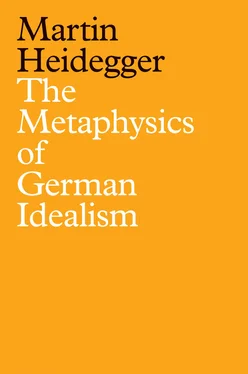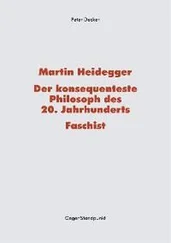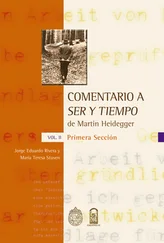3
But from where else can a necessity come to us? If we could reckon this necessity up for ourselves of our own accord, as it were, it would, then, not be a necessity that compelled us. Are there, then, mysterious experiences in play, which destine us to persevere with thought and to awaken a thinking which questions? This can suffice least of all in the realm of thought; here, cold audacity alone has the word. But this, too, is again only an assertion, which, moreover, takes it to be already decided that we are actually placed into a necessity to think. We appear thus again, only in another direction, to rush ahead endlessly on the path of misgivings. And is it not by now already clear that misgivings { Bedenken } most of all hinder us from thinking { Denken }?
Then, as a point of fact , everything hinges precisely on “making” a beginning in thought without having any misgivings. But should we then still engage with “the historiographic” at all? If not, where should we begin? How insignificant the aforementioned misgivings – regarding the restriction to a particular text of a single thinker – now seem in relation to the objection that, in reflecting on the metaphysics of German Idealism, we are already running after something past and “orienting” ourselves “historiographically.” This sort of orientation contains, after all, the admission that philosophy would only be the historiographical making-present of its past, which it admittedly must be when it no longer finds “a measure or rule” in itself. Schelling expressed himself clearly enough on this matter in the final paragraph of his Freedom Treatise (415): 2
If the dialectical principle, that is, the understanding which is differentiating but thereby organically ordering and shaping things in conjunction with the archetype by which it steers itself, is withdrawn from philosophy so that philosophy no longer has in itself either measure or rule, then nothing else is left to philosophy but to seek to orient itself historiographically and to take the tradition as its source and plumb line […]. Then it is time, as one intended to ground our poetry through acquaintance with the literature of all nations, to seek for philosophy a historical norm and foundation as well.
4
But Schelling turns against this time and says:
The time of merely historiographical faith is past, if the possibility of immediate cognition is given. We have an older revelation than any written one – nature. (Ibid.)
Yet does this hold straight away for our time as well? Or is this time – our time – a different one? Which law, then, requires that thinking conform to its time? Or is thinking untimely, and indeed always and necessarily so? But how could this be the case, if the untimely were but the inversion of the timely – a still fiercer dependence on “time” { “Zeit” }? In accordance with what should “an age” { “Zeitalter” } be determined in order for it to be definitive for a thinking? But how, if essential thinking first decides an age in what is most proper to it, and does so without this age having or being able to have a public consciousness of its own historical essence? But then this decisive thinking must in turn be so originary that it cannot lose itself to a past epoch, so as to reckon up from this epoch what is necessary for the present, making what is necessary conform with the present. That reckoning up is the essence of “historicism”; and this making-conform is the essence of “currentism” { “Aktualismus” }. Both belong together. They are the sometimes overt, sometimes covert enemies of decisive thinking (see § 5).
5
If, however, as our undertaking suggests, we do not abandon the historical reflection on the metaphysics of German Idealism – but perhaps first introduce it, in fact, and thereby nevertheless act only from the one necessity { Notwendigkeit } to think in the sense of essential thinking – then that is a sign that our necessities are different, different because the need { Not } has become a different one. Or is it perhaps even the same need, not the need of an age, not the need of a century, but the need of two millennia, the need arising from the fact that, ever since then, thinking has been “metaphysics”? Perhaps this need has meanwhile become more pressing, which does not preclude that it has become even less visible. Indeed, our thinking, when it attempts to reflect on German Idealism historically, is not a historiographic orientation; but neither is it “immediate cognition” in the manner of the metaphysics of German Idealism. The thinking that has become necessary is a historical thinking. An actual attempt should clarify what this means.
We will therefore now leave all misgivings about our undertaking to the side; we will, however, attend to how they resolve and sort themselves out in due course. For a long time to come, we will perhaps not be able to distinguish historiographic explanation from historical thinking. Yet this we shall keep in mind, namely, that the historical thinking attempted here can be subsumed neither under philosophicalhistoriographic explanation nor under “systematic” reflection, nor under a mixture of both. It suffices if we glean from what has been said, even if only in broad strokes, the manner in which we do not arbitrarily and blindly take up Schelling’s treatise so as to publicize it for erudite ends.
Several tools of the trade are necessary for the work of interpretation. But all this remains obtuse if we do not question and think from out of what presses and determines us, no matter how confused all this may be, and how beset it may be with habits of thought that have converged from often unknown sources and impetuses.
6
§ 3 Elucidations of the Title of the Treatise
Schelling’s treatise bears the title: “Philosophical Investigations into the Essence of Human Freedom and the Matters Connected Therewith.” It appeared in the year 1809 as the final part of a collection of investigations that Schelling had already published earlier and that were selected from the totality of his existing publications in order to serve as an introduction to the “Freedom Treatise.”
Cite the four preceding parts (do not at first go into the “works” and biography):
1 Of the I as Principle of Philosophy, or, On the Unconditional in Human Knowledge (1795)
2 Philosophical Letters on Dogmatism and Criticism (1795)
3 Treatises on the Elucidation of the Idealism of the Doctrine of Science (1796–1797)
4 On the Relation of the Fine Arts to Nature: An Academic Speech (1807)
The text of the Freedom Treatise will be cited according to volume and page numbers of the edition of Schelling’s Sämtliche Werke , 1856–1861, fourteen volumes. 3The Freedom Treatise can be found in volume VII, pp. 336–416. These page numbers are printed on the inner margin of the edition of the Philosophische Bibliothek . 4
7
The title of the treatise: philosophical investigations: “ philosophical ” ? – zētēsis ; “ freedom ”: arbitrary topic? freedom of the will? Kant; “ human ”: essence of the human; “ essence ”: inner possibility (formal concept) and ground of actuality ( centrum ), 5the absolute; “ and {…} therewith ”: with the “essence” (that is, with the absolute); “ connected ”: nexus – sustasis – system ; “ matters ” { Gegenstände }: (formally) what stands {steht} ‘there’ in such a standing-together (system) ; “ the ”: not a few – arbitrary ones, but, rather, eminent ones.
Читать дальше












